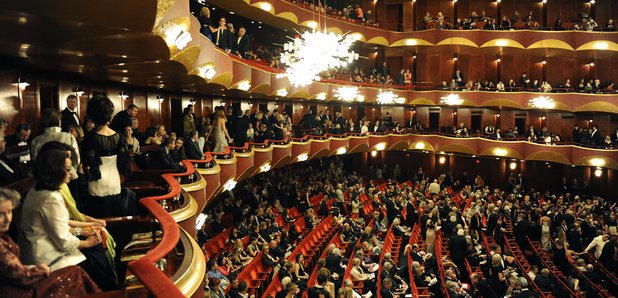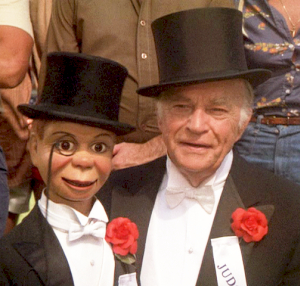Struggling N.Y. City Opera Paid Manager $408,000, Music Director $330,000
By Philip Boroff - May 24, 2011 1:30 PM PT
George Steel, artistic and general director of the New York City Opera. Steel earned $407,560 in salary and benefits in 2009. Source: New York City Opera via Bloomberg
New York City Opera, which says it’s leaving its Lincoln Center home to save money, paid George Steel, general manager and artistic director, $407,560 in salary and benefits for 11 months of work in 2009.
Steel took over the struggling company on Feb. 2, 2009. His compensation was disclosed in City Opera’s 2009-2010 tax return, which said the pay is “based on consideration of comparative data from similarly structured organizations and budgetary analysis.”
Maggie McKeon, a City Opera spokeswoman, didn’t immediately return e-mails asking for comment.
The Steel era coincided with severely truncated seasons. In the 12 months ending in June 2010, the company presented three dozen performances of five operas, plus concerts, according to the return. It played to about 56,000 people.
A year earlier, during the renovation of the David H. Koch Theater, the building it will soon try to vacate, there were about a dozen concerts around the city and a few educational programs. About 10,000 people turned out.
By contrast, in 2006-2007, the last season before General and Artistic Director Paul Kellogg retired, City Opera presented 118 performances of 12 productions. Attendance was nearly a quarter of a million. Kellogg earned $475,000.
Steel ran the Dallas Opera for three and a half months before accepting the City Opera top job. Before that, he had no opera management experience. NYCO paid him $355,000 in salary and benefits of $52,560 in his first year.
Mortier’s Payoff
His predecessor, Gerard Mortier, was paid $178,000 in 2009, part of a previously disclosed “severance” of $335,000. Mortier was hired in February 2007 and resigned in November 2008 before he even began full-time. Why the company was obligated to pay him severance remains unclear. He’s now at the Madrid opera.
One concession to tough times: Steel, unlike Mortier, doesn’t fly first class on company business, the return said.
Music Director George Manahan’s pay and benefits were $327,204, down 10 percent from 2008 and little changed from the busy season of 2006-2007. David Titcomb, who plays bass trombone and is the orchestra manager, had compensation of $248,180, up 13 percent from a year earlier.
“The two work together extremely well,” said Gail Kruvand, assistant principal bass for the opera and the orchestra’s representative on the board of directors. “The company has banked a lot of good will with the orchestra. We’ve been a happy group.”
In 2009-2010, the orchestra accepted a cut in guaranteed weeks. Players’ annual pay dipped that season by a quarter, from $48,575 to $36,850, plus rehearsal fees of $60 an hour.
Edward Yim, the opera’s director of artistic planning, who joined in March 2009, earned $160,824 in pay and benefits in his first 10 months.
The opera reported a deficit for 2009-2010 of $7.6 million, down from $10 million the year before, excluding 2008-2009’s investment losses.
Last week, the company said it would fire staff and abandon the Koch Theater. The company will also eliminate employment guarantees for singers and orchestra members, according to the American Guild of Musical Artists, which represents singers, stage directors and stage managers. The union said it will protest the end of guarantees by picketing outside Steel’s home, among other measures.
To contact the writer on this story: Philip Boroff in New York at pboroff@bloomberg.net.
To contact the editor responsible for this story: Manuela Hoelterhoff at mhoelterhoff@bloomberg.net.
























![[met3]](http://si.wsj.net/public/resources/images/OB-JM783_met3_G_20100806232843.jpg) Associated Press
Associated Press 

















 If Broadway shows have gotten unusually expensive, one major reason is the dominant presence of
If Broadway shows have gotten unusually expensive, one major reason is the dominant presence of 





























No comments:
Post a Comment